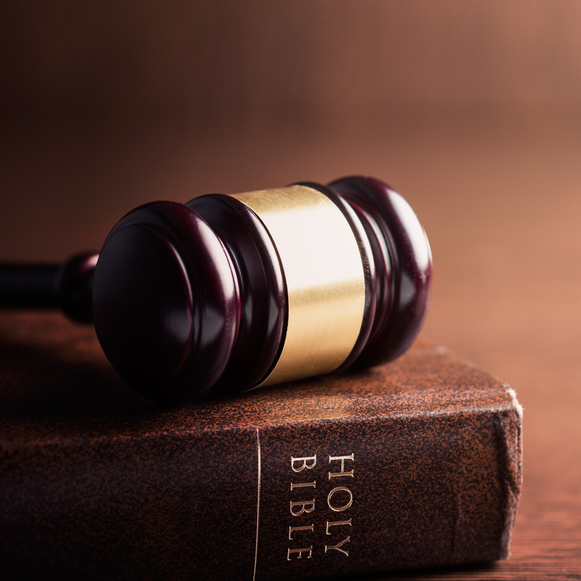SCOTUS bars Alabama from executing inmate without pastor; Barrett joins with liberal justices in concurrence

Image from Shutterstock.com.
The U.S. Supreme Court late Thursday refused to allow Alabama to execute an Alabama inmate if he is not allowed to have a pastor with him in the execution chamber.
The court refused to lift an injunction barring the execution of Willie B. Smith III, who was convicted in the 1991 kidnapping, robbery and murder of Sharma Ruth Johnson, who was abducted at gunpoint from an ATM.
The New York Times, SCOTUSblog and the Washington Post have coverage of the Feb. 11 order and opinions.
At issue was whether the inmate was entitled to a spiritual adviser in the death chamber under the Religious Land Use and Institutionalized Persons Act, which provides protection for prisoners’ religious liberty.
The court’s newest justice, Justice Amy Coney Barrett, joined a concurrence written by Justice Elena Kagan that said Alabama had failed to justify its policy of barring all spiritual advisers from the execution chamber. Justices Stephen G. Breyer and Sonia Sotomayor also signed the concurrence.
In the last year, the federal government has carried out more than 10 executions attended by the prisoner’s clergy of choice, and some states have followed the same practice.
“Nowhere, as far as I can tell, has the presence of a clergy member (whether state-appointed or independent) disturbed an execution,” Kagan wrote.
Three justices—Chief Justice John G. Roberts Jr., Brett M. Kavanaugh and Clarence Thomas—indicated that they would have allowed the execution of Smith to proceed. At least one of the two justices who did not disclose their vote must have voted with Barrett and the liberal justices to block the execution, SCOTUSblog points out.
Alabama had changed its policy to bar all spiritual advisers in the death chamber after the Supreme Court in March 2019 blocked the execution of a Texas inmate who wasn’t allowed to bring his Buddhist spiritual adviser into the execution chamber.
Kavanaugh wrote a concurrence to the 2019 decision, Murphy v. Collier, that said Texas was discriminating on the basis of religion when it allowed Christian and Muslim chaplains into the execution chamber but not religious advisers from other denominations. Going forward, Kavanaugh wrote, the state could allow any religious adviser into the death chamber, or it could relegate all of them to the viewing room.
In the new case, Kavanaugh would have allowed Smith’s execution to proceed because the state’s policy barring all pastors from the execution chamber is nondiscriminatory. His dissent was joined by Roberts.
Kavanaugh noted that the court majority does not appear to be in agreement with his view. States that want to avoid execution delays because of the issue “should figure out a way to allow spiritual advisers into the execution room, as other states and the federal government have done,” he wrote.
The case is Dunn v. Smith.



